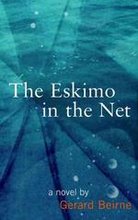I am giving a reading at the Winnipeg Folk Festival in July (as part of the Manitoba Writers’ Guild’s 25th birthday celebrations). Thus I’ve been thinking a lot about readings recently. In particular I have been thinking about poetry readings. I’ve been thinking about the purpose of them, what they are really about. And I’ve reached a conclusion: Charles Bukowski was right. A reading is a time to threaten to kick the audience’s ass.
Most people who show up at readings (and for the record most people don’t show up at readings) don’t know what they are doing there and most possibly are in the wrong place. Bukowski would stand there with a fridge to one side swigging a bottle of beer cursing at people in the audience. Ginsberg would walk out on the stage at the Six Gallery on Fillmore Street in San Francisco at around 11pm, October 6th 1955 and read those infamous lines in public for the first time: "I saw the best minds of my generation destroyed by madness, starving hysterical naked …" Kerouac standing at the back shouting "Go! Go! Go!" Lorca might stare into the night and invoke the Duende.
David Groff in his essay, The Perils of the Poetry Reading: The Page Versus the Performance, writes of the “"mmmmm" emanating from somewhere in the crowd, usually at the conclusion of poem with a linguistic or emotional zinger.” He worries that “some kinds of poems are more effective than others when read aloud. Narrative poetry, and lyrics with a narrative or situational thread, pack more punch than more abstract verse does. Poems that twist back on themselves to end with neat little epiphanies, as well as poems that harangue or overtly solicit a surprise, are the most likely to elicit an mmmmm.”
He’s right of course. A good reader can make even the most banal of poems sound interesting and possibly even good. Conversely a poor reader of poetry can annihilate the most important of poems. Coupled to this is the reality that certain poems, no matter how good they are, are simply not suited to the reading space. One element of this has, as Groff states, to do with the narrative thread which holds the audience’s attention. Poems which are more lyric by nature, suspended in time can be difficult to absorb within the context of a reading. Groff suggests distributing copies of the poem to help overcome this difficulty and to enable the form of the poem to be displayed for the listener/reader.
And there’s the rub. The listener now becomes a reader too. So reader’s are reading to readers. Personally, nothing is more disconcerting for me than to look out at an audience and to see one or other of them following along in the book. What I ought to do I know is jump from behind the podium and. not just threaten but actually, kick their tensed up behinds. What if I stray from the text as I occasionally do. After all this is a reading, and I am responding to the listener. When I write I am alone, and I respond to the page.
There is great debate about the nature of poetry readings, but very often the debate is not to be trusted. Poets who are uncomfortable reading in public van often argue against the ‘performance’ aspect of the reading which creeps in and ‘distracts’ from the poem. Poets who are very comfortable reading in public may well encourage the act of performance or argue that there is room for both in order to justify their own particular style of reading.
Personally, at this moment in time, I am more the ‘dramatic’ type of reader. Part of this is comfort and habit, and it is certainly a limiting technique. I have to be selective in the poems I read and it is not truly reflective of the poet I am. But since when has the public appearance or presentation of a writer been truly reflective of the writer they are? The public and private persona are facets of the individual. And on any one occasion, or even on a multitude of occasions, only a small portion of these personae can be revealed.
It all comes back to the question of purpose. Why are people reading in the first place? There are many answers: to promote their work; to sell books; to promote poetry itself; to give the reader an opportunity to witness the writer; to change the world or whatever. Well I like to think Ginsberg did on that night in San Francisco. “Go! Go! Go!” Kerouac shouted and little old earth tilted on its axis and picked up speed.
The audience can get too complacent, and the poet as reader and writer, is a part of the wider audience too. The poem came from the oral tradition. The poem was and always will be a spoken entity. There came a point in our development where we felt a need to write the spoken word down for good or for bad. We cannot now go back and separate the two. The poem is read aloud because it demands to be. The building blocks of poetic form are oral ones. Stand for a moment in the ancient ruins and you will hear them wail out to you. The purpose of the poetry reading is to remind people of the past. It is to provide them with the ears to hear the ancient wail. There are any number of ways to do this, and any number of poets who do. But yes there are very many who would rather elicit the modern ‘mmmmm’ and there are very many members of the audience that would prefer to utter it. My preference for my poetic delivery may be flawed. I genuinely hope it is not as I have greatly considered the consequences and impact. I do not wish to overshadow the line but to use my voice as lyre and reveal it more clearly in the absence of the written word.
Groff is accurate that there are many perils to performing poetry, and he is right that many readers, writers and poems are harmed by these ever present dangers. The pitfalls need to be avoided. Writers and readers must consider what they are doing when they are behind the podium, or prowling the aisles, or seated in their hard or soft chairs. In my opinion the onus is on the writer to remind the audience of that through their words and delivery. They must remind the audience of the ancient wail. They must reveal by the best means available to them the truth of the work being read. They must by their performance and demeanour encourage the audience to engage responsibly, and to warn them that if they do not do so, they will personally jump amongst them and kick their careless asses.
The Poetry Reading by Charles Bukowski
poetry readings have to be some of the saddest
damned things ever,
the gathering of the clansmen and clanladies,
week after week, month after month, year
after year,
getting old together,reading on to tiny gatherings,
still hoping their genius will be
discovered,
making tapes together,
discs together,
sweating for applause
they read basically to and for
each other,
they can't find a New York publisher
or one
within miles,
but they read on and on
in the poetry holes of America,
never daunted,
never considering the possibility that
their talent might bethin, almost invisible,
they read on and on
before their mothers, their sisters, their husbands,
their wives, their friends, the other poets
and the handful of idiots who have wandered
in
from nowhere.
I am ashamed for them,
I am ashamed that they have to bolster each other,
I am ashamed for their lisping egos,
their lack of guts.
if these are our creators,
please, please give me something else:
a drunken plumber at a bowling alley,
a prelim boy in a four rounder,
a jock guiding his horse through along the
rail,
a bartender on last call,
a waitress pouring me a coffee,
a drunk sleeping in a deserted doorway,
a dog munching a dry bone,
an elephant's fart in a circus tent,
a 6 p.m. freeway crush,
the mailman telling a dirty joke
anything
anything
but
these.











